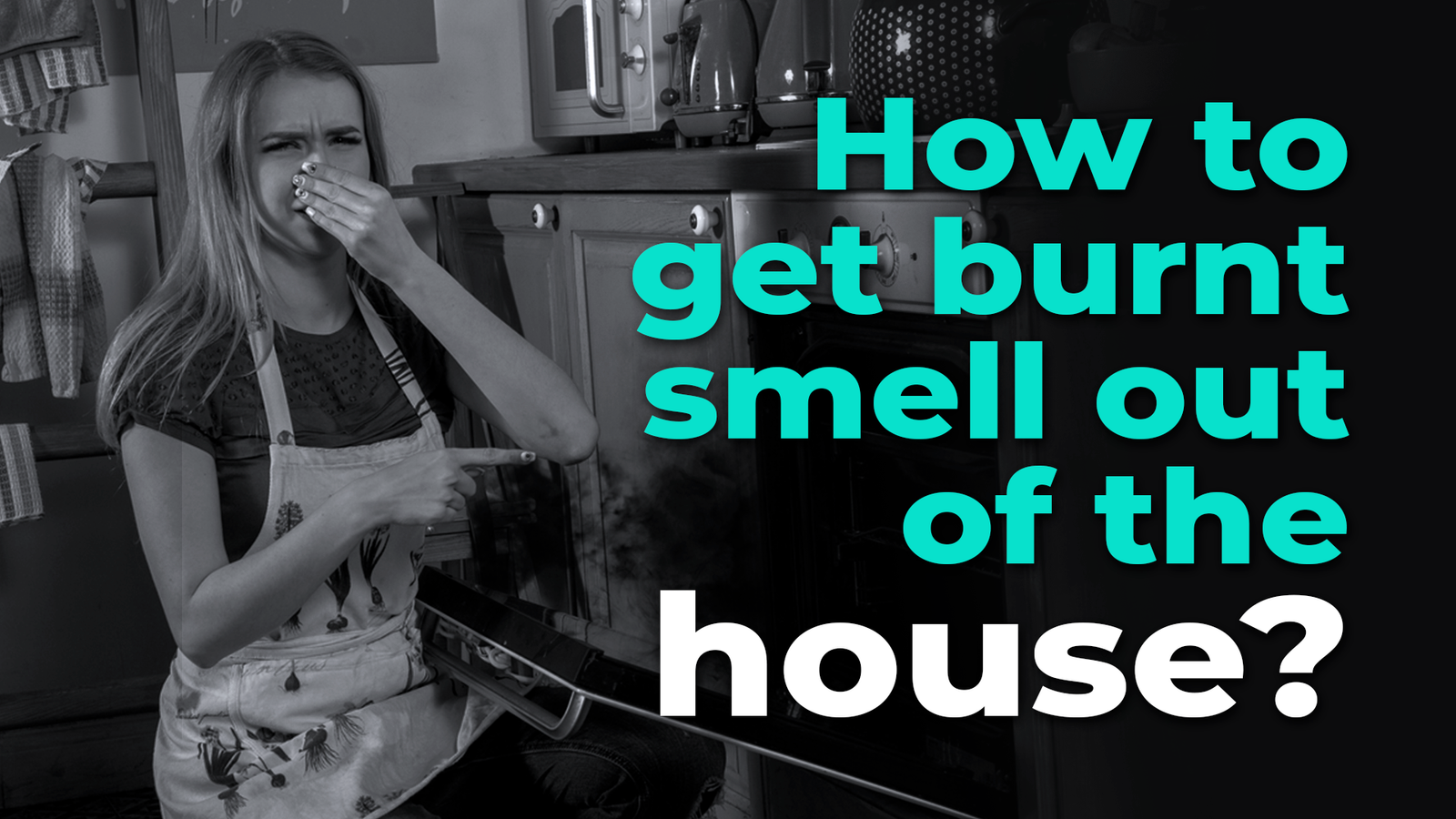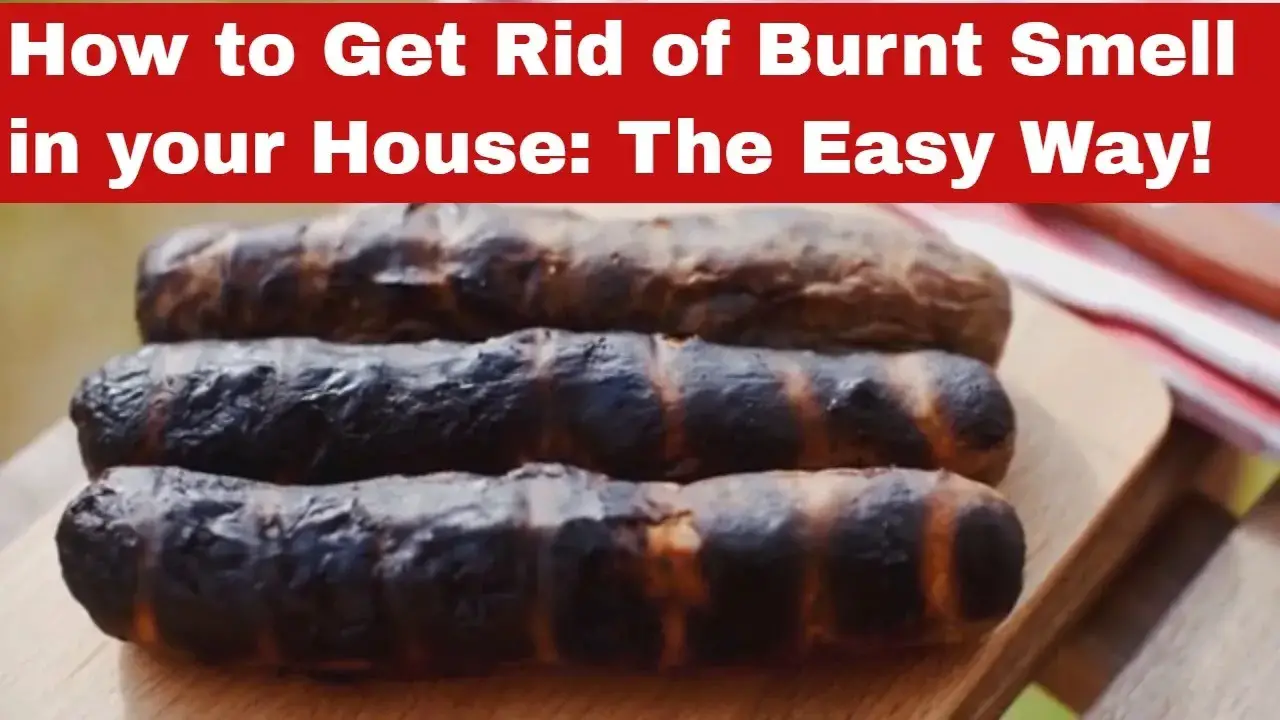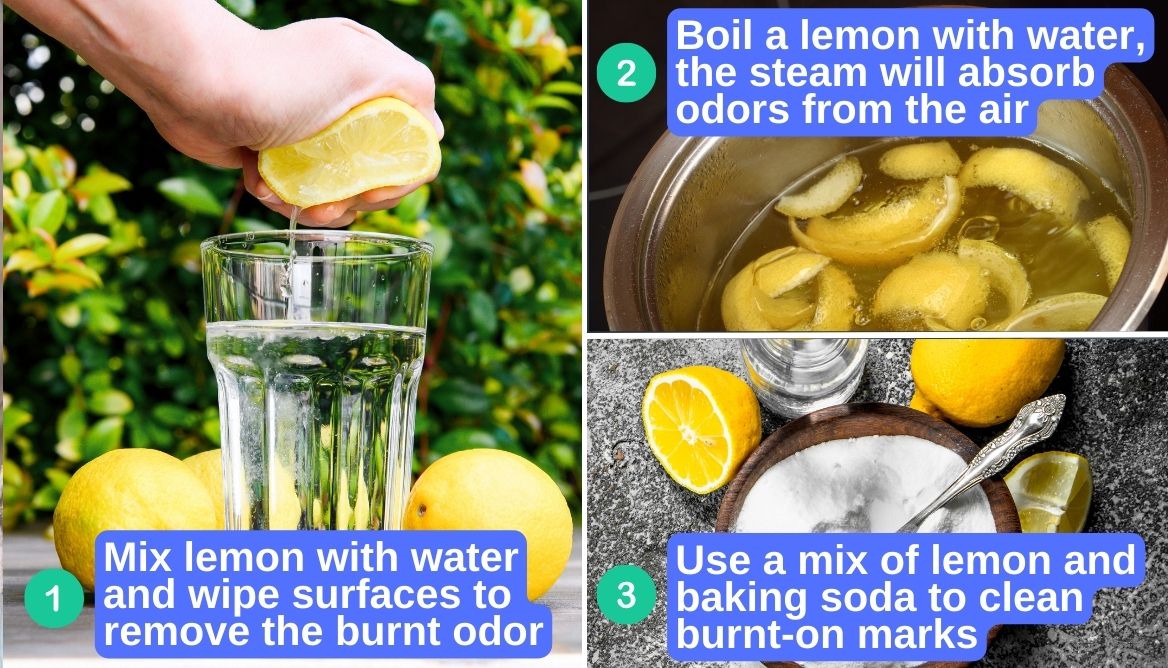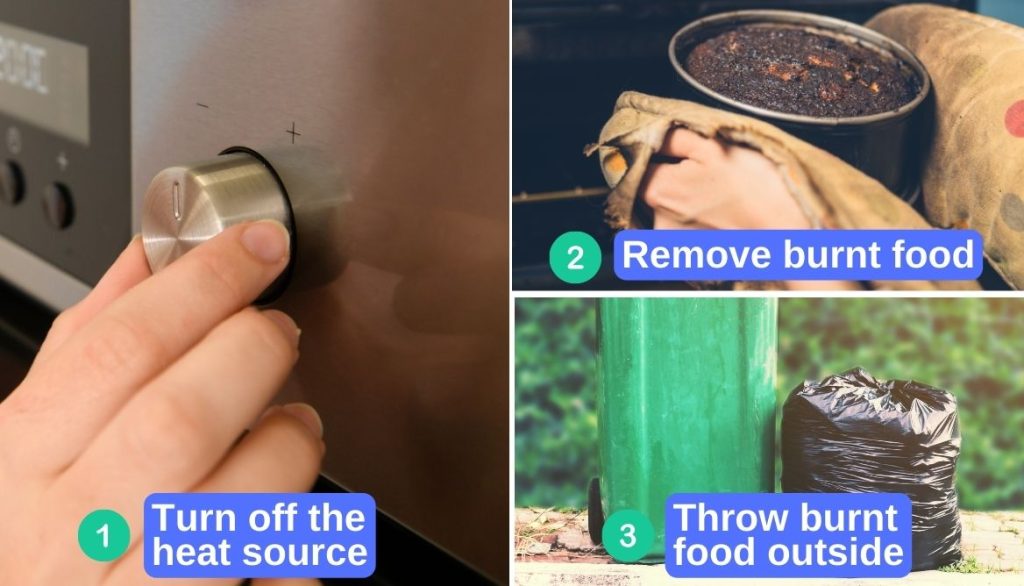How To Get Rid Burnt Smell In Your House
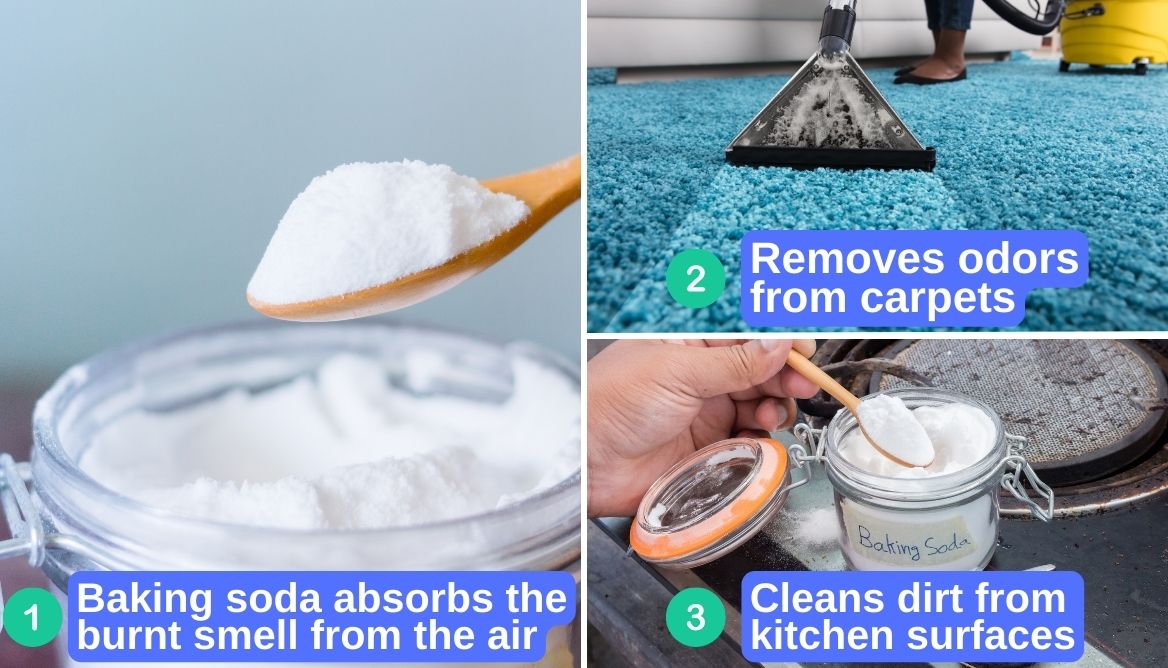
Banishing the Burnt Smell: A Guide to Freshening Your Home and Ensuring HVAC Efficiency
That acrid, lingering smell of something burnt is more than just unpleasant; it can be a warning sign of underlying issues, some of which could impact your home's energy efficiency and even pose safety risks. Whether it’s a kitchen mishap, an electrical issue, or something more mysterious originating from your HVAC system, understanding how to effectively eliminate the odor and identify the source is crucial for homeowners and businesses alike. This article provides a comprehensive guide to getting rid of burnt smells, with a focus on energy-conscious solutions and preventive measures that can save you money in the long run.
Immediate Action: Addressing the Obvious Sources
First, identify the obvious. If the burnt smell originated in the kitchen, tackle it head-on. Thoroughly ventilate the area by opening windows and doors. Use fans to circulate fresh air and expedite the removal of the odor. Beyond just airing out the space, you’ll need to address the residue and potential lingering smells:
- Clean the affected area: Use a strong degreasing cleaner to scrub down surfaces like stovetops, ovens, and countertops. Consider using a baking soda paste for stubborn burnt-on food.
- Boil water with vinegar: Simmer a pot of water with a cup of vinegar on the stovetop for an hour. The steam will help absorb lingering odors.
- Activated charcoal: Place bowls of activated charcoal around the kitchen. Charcoal is a highly absorbent material that can effectively neutralize odors.
Remember to clean your oven regularly to prevent future burnt food odors. Many modern ovens have self-cleaning cycles, but be mindful of the energy consumption involved. Consider using the self-cleaning cycle sparingly, or opting for manual cleaning methods for minor spills. Consult your oven's manual for best practices.
Investigating Electrical Odors: When to Call a Professional
A burnt electrical smell is a serious concern. It often indicates overheating wires, faulty outlets, or damaged appliances. Do not attempt to diagnose or repair electrical problems yourself unless you are a qualified electrician.
Here's what to do if you suspect an electrical issue:
- Turn off the power: Immediately switch off the circuit breaker corresponding to the affected area or appliance.
- Unplug appliances: If the smell is localized near a specific appliance, unplug it immediately.
- Call a qualified electrician: A licensed electrician can identify the source of the problem and perform necessary repairs.
Preventive measures are key to avoiding electrical fires and related odors. Regular electrical inspections can identify potential hazards before they become major problems. Consider upgrading to energy-efficient appliances and LED lighting, which produce less heat and reduce the strain on your electrical system. Furthermore, smart power strips can minimize "phantom load" – the energy consumed by appliances when they are turned off but still plugged in. This not only saves energy but also reduces the risk of overheating.
HVAC Systems: A Potential Source of Burnt Smells
Your HVAC system, while essential for maintaining comfortable indoor temperatures, can also be a source of burnt smells. There are several potential causes:
- Burning Dust: After periods of inactivity, dust can accumulate on the heating elements of your furnace or heat pump. When the system is first turned on for the season, this dust can burn, creating a temporary burnt smell. This is usually harmless and dissipates after a short time.
- Electrical Issues: Similar to the electrical issues mentioned earlier, burnt smells in your HVAC system could indicate problems with the blower motor, wiring, or other electrical components. This requires immediate attention from a qualified HVAC technician.
- Damaged Components: Over time, components like belts, bearings, and motors can wear down and overheat, producing a burnt smell. Regular maintenance can prevent these issues.
- Refrigerant Leaks: While refrigerant itself doesn't have a distinct burnt smell, a leak can cause the compressor to work harder and potentially overheat, leading to a burnt odor.
To address burnt smells originating from your HVAC system:
- Change your air filters regularly: Dirty air filters restrict airflow, causing your system to work harder and potentially overheat. Energy Star recommends changing your air filters every 1-3 months, depending on the type of filter and the level of dust and allergens in your home.
- Schedule regular HVAC maintenance: Annual maintenance by a qualified HVAC technician can identify and address potential problems before they lead to burnt smells or energy inefficiencies. This includes cleaning the system, inspecting components, and checking refrigerant levels.
- Consider a smart thermostat: Smart thermostats learn your heating and cooling preferences and automatically adjust the temperature to optimize energy efficiency. They can also alert you to potential problems with your HVAC system, such as unusual running times or temperature fluctuations, which could indicate a problem.
Upgrading to a high-efficiency HVAC system can significantly reduce your energy consumption and lower your utility bills. Look for systems with high SEER (Seasonal Energy Efficiency Ratio) ratings for cooling and high AFUE (Annual Fuel Utilization Efficiency) ratings for heating. Many utility companies offer rebates and incentives for upgrading to energy-efficient HVAC equipment. Check with your local utility company or visit the Energy Star website for more information.
Beyond the Immediate Smell: Preventing Future Occurrences
Eliminating the burnt smell is just the first step. Preventing it from returning requires a proactive approach. Here are some tips:
- Regularly clean your appliances: Clean your oven, stovetop, microwave, and other appliances regularly to prevent food from burning and causing odors.
- Maintain your electrical system: Schedule regular electrical inspections to identify and address potential hazards.
- Practice fire safety: Install smoke detectors on every level of your home and test them regularly. Have a fire extinguisher readily available in the kitchen and know how to use it.
- Improve ventilation: Ensure adequate ventilation in your kitchen and bathrooms to remove moisture and odors. Consider installing exhaust fans if needed.
- Use air purifiers: Air purifiers with HEPA filters can remove dust, allergens, and odors from the air, improving indoor air quality.
- Invest in smart home technology: Smart smoke detectors can send alerts to your smartphone if smoke is detected, even when you're away from home. Smart leak detectors can alert you to water leaks, which can lead to mold growth and unpleasant odors.
The ROI of Preventative Measures and Energy Efficiency
Investing in preventative measures and energy-efficient upgrades not only eliminates unpleasant odors but also provides a significant return on investment. Regular HVAC maintenance can prevent costly repairs and extend the lifespan of your system. Upgrading to energy-efficient appliances and lighting can significantly reduce your energy consumption and lower your utility bills. Smart home technology can provide added convenience and security, while also helping you save energy.
For example, a smart thermostat, costing around $150-$250, can save you approximately 10-12% on heating costs and 15% on cooling costs, according to Energy Star. This translates to an annual savings of $131 to $145. Many utility companies offer rebates on smart thermostats, further reducing the initial investment.
Similarly, upgrading to a high-efficiency HVAC system can save you hundreds of dollars per year on your energy bills. The initial cost may be higher, but the long-term savings and increased comfort are well worth the investment. Government tax credits and utility rebates can help offset the initial cost.
Conclusion: A Holistic Approach to a Fresh, Energy-Efficient Home
Getting rid of burnt smells requires a multi-faceted approach. By addressing the immediate source of the odor, investigating potential underlying issues, and implementing preventative measures, you can create a fresh, healthy, and energy-efficient home. Remember to prioritize safety when dealing with electrical issues or HVAC problems, and don't hesitate to call a qualified professional when needed. By embracing energy-efficient solutions and smart home technology, you can not only eliminate unpleasant odors but also save money on your energy bills and improve the overall comfort and value of your home. Moreover, consider that sustainable living and reduced energy consumption help contribute to a healthier environment for everyone.



